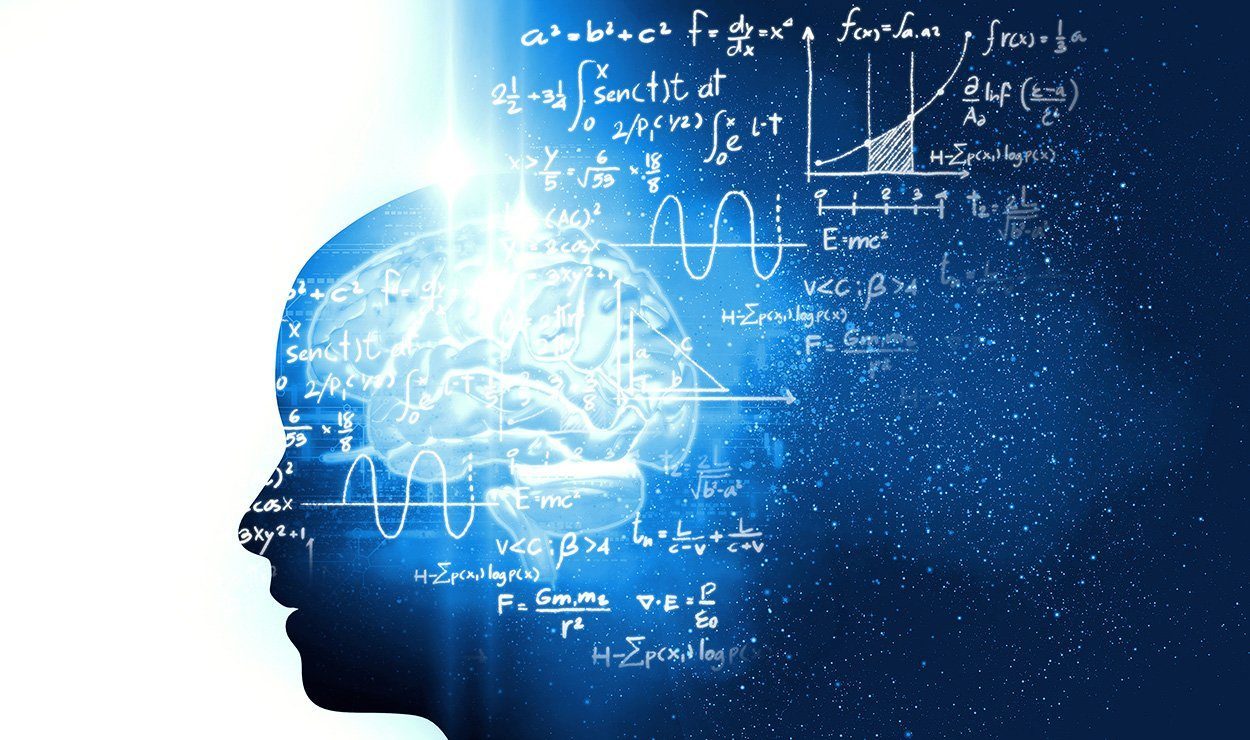In the UK, students aged 16 are allowed to opt out of math. But whoever decides not to take math classes may impair their brain development. According to a study, teenagers without maths lessons have a decreased concentration of the neurotransmitter GABA in a region of the brain that is related to memory and reasoning. Supplementary studies suggest that these changes in brain metabolism are not the cause, but the consequence of the math lessons being discontinued. According to the researchers, this shows the interaction between education and brain development in adolescence.
According to studies, people with a high mathematical education are on average healthier, better financially secure and have a higher socio-economic status. Previous surveys in Great Britain, where students aged 16 can opt out of math, have found that those who choose not to have up to 11 percent less income later than classmates from similar social backgrounds who do math until the end of their school career to have. No other subject had such an impact on later life.
Math in the brain
A team led by George Zacharopoulos from the University of Oxford in Great Britain has now investigated the influence of mathematical education on the development of the brain. In doing so, they focused on two brain regions that have previously been associated with math skills: the left middle frontal gyrus (MFG), which is associated with working memory, reasoning, learning and problem solving, and the intraparietal sulcus ( IPS), whose functions lie in areas such as spatial perception, estimating and simple arithmetic tasks.
In the first part of their study, the researchers had 87 young people between the ages of 16 and 18 take tests on their math skills. With the help of magnetic resonance spectroscopy, they also measured the concentration of two important neurotransmitters, glutamate and GABA (gamma-aminobutyric acid) in the two brain regions of the students associated with mathematics. Glutamate is considered an exciting neurotransmitter, GABA an inhibiting one. The balance between these two neurotransmitters ensures the functioning of the brain and neuronal plasticity. In previous studies, decreased GABA levels were associated with decreased cognitive performance.
GABA levels decreased without math
“In line with previous studies, we have shown that those who decided against math performed worse on tests on numerical skills and math thinking, but had higher scores on a test that assesses fear of math,” report the researchers. There was a noticeable difference in the neurotransmitters: Those who had deselected math had less GABA in the middle frontal gyrus. In the intraparietal sulcus, however, the deviations were not significant. Using the GABA level, the researchers were also able to predict how the students would perform in mathematical tests 19 months later. Lower GABA concentrations were associated with poorer performance.
This raises the question of whether the reduced GABA level was the result of a lack of math lessons, or whether students who have less GABA are more inclined to opt out of math. To do this, the researchers examined another group of students who had already decided whether to continue math or deselect, but were still taking math lessons at the time of the study. These students also showed differences in their math skills, with those who wanted to continue doing math performed better. But when it came to neurotransmitters, these students were no different. The GABA deficiency actually only arises when the students stop doing math. This effect was not found in other subjects such as biology or physics.
Interplay between education and brain development
“Adolescence is a phase of life that is associated with important changes in the brain and cognitive abilities,” says Zacharopoulos colleague Roi Cohen Kadosh. “Unfortunately, the ability to quit math at this age seems to create a gap between youngsters who drop out and those who continue. Our study provides a new level of biological understanding of the effects of education on the developing brain and the interaction between biology and education. “
In order to create more equal opportunities, it is important to compensate for the harmful effects of the lack of math lessons and to prevent long-term effects. “Not every adolescent enjoys math,” says Cohen Kadosh. “So we have to investigate possible alternatives, such as training in logic and logical thinking that addresses the same brain area as math.” The results are also relevant in connection with the current Covid-19 pandemic, which is leading to many children and Adolescents receive no or only inadequate schooling. “While we don’t yet know the long-term impact of this interruption, our study provides an important understanding of how the lack of a single component in education, math, can affect the brain and behavior,” said Cohen Kadosh.
Quelle: George Zacharopoulos (University of Oxford, UK) et al., Proceedings of the National Academy of Sciences, doi: 10.1073/pnas.2013155118
–

